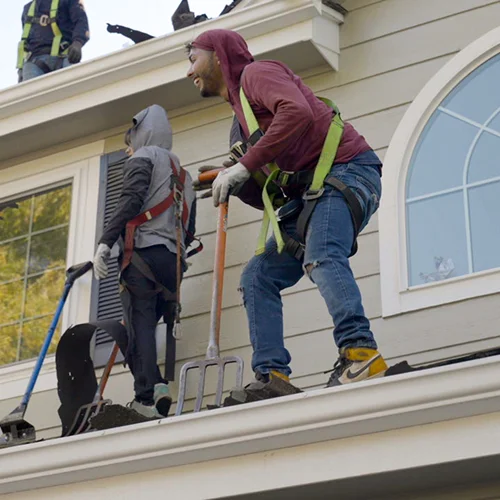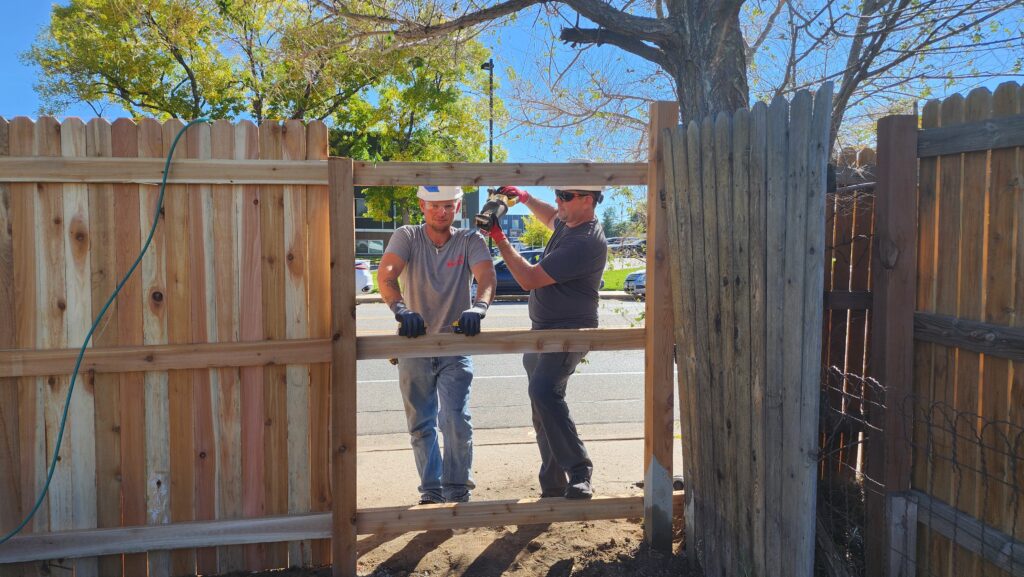What should you look for in a Denver roofing contractor?
A trustworthy Denver roofing contractor should be licensed, insured, offer warranties, have local experience, and provide written contracts. Elite Roofing & Solar explains how to spot the best roofer—and avoid the worst.
Learn How to Choose the Best Roofing Contractor in Denver
Selecting a Denver residential roofing contractor is a big decision, the implications of which will impact your property for years to come. During storm season, storm-chasing roofers may be knocking at your door, while at any time of year, there are dozens of contractors to choose from. How can you choose a roofing company you can rely on?
At Elite Roofing & Solar, we always encourage homeowners to explore their options to ensure they pick the best roofer for their needs. If you’ve never chosen a roofer before, here’s how to hire a reliable roofing contractor in Denver.

Ask Questions Before Hiring
Knowing what questions to ask is critical for homeowners. The best roofers will be highly communicative, responsive to your concerns, and completely transparent. Key questions to ask include:
- Are you licensed, insured, and bonded? – Only consider contractors who can provide proof that they are insured, licensed, and bonded. If you encounter any contractors that cannot readily provide this information, it is best to rule them out immediately.
- How long have you been serving the Denver area? – Local roofers are the best option for homeowners, and particularly roofers with several years of experience under their belts. This is because few roofing companies survive past their first couple years of operation—which could leave you searching for a new roofer the next time you need one.
- Can you provide references from area homeowners? – The best Denver roofers have a long list of happy customers in the area. This speaks well of the quality of a roofer’s work.
- Do you provide a warranty? – Having a warranty in place is the best way to protect yourself down the road. This includes both a workmanship warranty as well as any material warranties they’re able to provide due to advanced certifications from top manufacturers, such as Owens Corning.
- How will you protect my property? – Roofing is messy work! Your roofer should have several protocols in place to protect your home and landscaping from damage and to remove debris after your roof is installed.
Red Flags to Watch For
While not every roofer can be the best, there are unfortunately some roofing contractors who take that a step further. These are the scam artists and con men—roofers who offer to replace your roof at a steep discount, do shoddy work, and then leave homeowners holding the bag.
Homeowners can avoid these types of roofers by watching for red flags like:
- No written contract – Always get your estimate and contract in writing.
- No clear contact information – A good roofer will provide you with the name of the company, their address, and the phone number for your point of contact.
- Demanding full payment upfront – A deposit is common, but most roofing projects aren’t fully paid out until work is completed.
- No proof of insurance or licensing – This is a sign that the roofer is not insured, which can leave you liable for damage or injuries on your property.
- Offering to waive your deductible – While it sounds like a good way to save money, it’s actually a form of insurance fraud.

Local Knowledge and Permits
When considering roofers for your project, it’s important for Denver homeowners to narrow the field to contractors based in our area. Local roofers provide several benefits compared to roofing companies based farther away, including:
- Local knowledge – Only local roofers can say they’re experts at roofing in your area. Building codes vary from county to county, city to city, and even across different neighborhoods. A local roofer will be much more familiar with these details and know what permits will be needed for your project.
- A roofing partner – An established, local roofing contractor is motivated to build long-term relationships, not just make a quick sale. This makes things easier as a homeowner—the next time you need roofing work, you’ll know exactly who to call.
- Better response times – Roofing issues can happen at any time—often unexpectedly. A local roofer will be much more able to respond quickly if you’re faced with a roofing emergency.
- Trust-based relationship – Local roofing companies depend on their reputation in the community—after all, they can’t just pick up and move somewhere else. This means they’re committed to providing high-quality service and to making things right if anything goes wrong.
When Is It Time to Replace?
Replacing your roof is a major investment and a very disruptive project for any homeowner. Because of this, homeowners want to be sure their roof is truly at the end of its life before scheduling a roof replacement. These are some of the major signs that your roof needs replacing.
Aging Roof
One of the top reasons for a roof replacement is simply that your roof reached the end of its lifespan. For asphalt shingle roofs, this will typically be after 20–30 years or so.
Weather Damage
In Denver and across the Front Range, the storm season is brutal for roofs. Damaging hail and high winds can leave behind major roof damage that can only be addressed by replacing your roof.
Improve Energy Efficiency
A new roof can improve the energy efficiency of your home or provide a strong platform to install a new solar array and maximize the lifespan of the system.
Increasing Value
A higher-quality roof made from impact-resistant materials may increase the resale value of your home. This is especially true if your roof is at least halfway through its lifespan.

Elite Roofing & Solar: Top Roofing Contractors in Denver
We’ve worked hard to become the best roofer serving Denver and the Front Range. From our experience and community involvement to our online reviews and ratings, our record truly says it all. The only thing left is to tell us about your next roofing project!
Reach out to Elite Roofing & Solar to get started.







